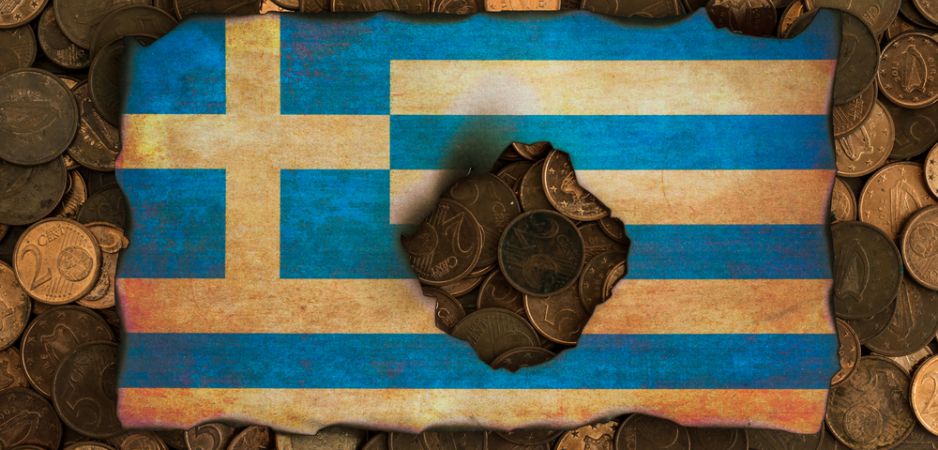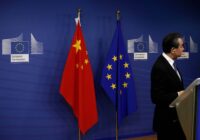Greece should look to Seychelles for lessons on rejuvenating its ailing economy.
Oxi it is! In early July, the Greek electorate delivered a thumbs-down to sermons from lenders, media, international bodies and diplomats. Greeks chose not to give in when placed under overwhelming pressure from “Team Euro.”
The Greek debate means all sorts of things to people of all hues. Chiefly, the internationalists and regionalists have hijacked an economic debate and turned it into a philosophical one. This debate may decide the future and form of the European Union (EU), the biggest experiment on regional integration in history. While this philosophical battle rages on in the eurozone, the Greek people are on the sidelines awaiting their dreary fate.
Among all the hoopla about a Greek default, “Grexit” and Greek referendum, a routine press release by the World Bank went unnoticed. Seychelles, a tiny Indian Ocean archipelago, was promoted to a high income category by the World Bank in the first week of July. What is the relevance of Seychelles to the Greek crisis?
In 2008, Seychelles had a debt-to-gross domestic product (GDP) ratio of 177%, and a negative GDP growth rate of -2.14%. Greece was in a slightly better position at the time, as it had a debt-to-GDP ratio of 117% along with a GDP growth rate of -0.4%.
Yet 2015 bears testimony to a healthy Seychellois economy, while the Greek economy is still in the doldrums. The numbers speak for themselves. The present debt-to-GDP ratio in Seychelles stands at 63%, and the country’s growth rate is 2.76% for fiscal year (FY) 2014. This is in stark contrast to Greece’s gloomy picture as the country has grown 0.8% in FY2014 with a debt-to-GDP ratio of 172%.
The Greek debt crisis shows no sign of abating, despite the implementation of austerity measures. In the midst of this tedious situation, the 26% unemployment rate has the potential to precipitate a political crisis.
The economic problems of Greece are twofold: a lack of monetary and fiscal leverage. Since its entry into the eurozone, Greece has had no monetary leverage to inflate its way to growth. Printing money would have allowed Greece to rein in interest rates and boost export competitiveness. Furthermore, the International Monetary Fund (IMF) is seeking to dictate fiscal policy decisions in order to allow for timely debt servicing. This leaves Greece’s monetary and fiscal policy autonomies to bureaucrats and academics; both of whom are unable to fathom the complexities of Greece’s social fabric while making decisions on the country’s economy.
Amid all this, another vital peg of Greek armory is missing. Prior to 2010, Greek credit was extensively subscribed to private banks, which brought forth serious risks of financial contagion from a Greek default. With credit transferred to the rest of the eurozone’s balance sheets, a widespread systemic disruption is less likely in case of a Greek default; private banks are not as exposed anymore.
As the immediate threat of a nuclear option default is no longer credible, the focus has shifted to retaining Greece within the EU rather than nourishing it back to strong economic health. Under these circumstances, the Greek government can either participate in negotiations with lenders that lead to iterative attrition of its economy, or it can seek innovative ways out of this crisis.
The Seychellois experience becomes relevant under the latter option. How has a tiny debt-ridden country been able to rejuvenate its economy and continue to maintain a welfare state?
Seychelles is an interesting policy example to learn from and adapt wherever relevant. Despite the obvious political and economic dissimilarities between the two nations, basic philosophical bedrocks can always be understood and replicated to help other countries emerge out of a crisis.
The Seychellois crisis of 2008 is succinctly explained by the IMF:
“Since independence in 1976, Seychelles—an archipelago of about 115 islands in the middle of the Indian Ocean—had built up a successful economy, supported by a growing tourism sector. But a combination of overly expansionary fiscal and monetary policies, a pegged exchange regime, and a complex system of exchange controls, state subsidies and financial sector restrictions culminated in a severe balance of payments and public debt crisis in the second half of 2008.”
Here are some lessons from the Seychellois experience that Greece would do well to learn from.
Lesson 1: Own Your Reform Process
President James Michel, who was leading a left-leaning party, had a big task of selling the reforms to his constituency. Strategically enough, the government owned and actively aided the reforms process. Instead of packaging the reforms as an imposed necessary evil, Seychelles used the IMF package to rewire its economy with minimal pain. The National Assembly speaker at the time stated that the authorities transitioned from being “proponents of welfarism” to “fervent promoters of entrepreneurship.”
In the case of Seychelles, austerity measures were used to encourage the transfer of employment generation from the public to private sector without cutting employment opportunities. Utilizing the IMF support, Seychelles was able to remove foreign exchange restrictions, float its currency, liberalize interest rates, modernize its monetary framework, and significantly tighten its fiscal stance. Seychelles rejuvenated its fundamentals without the need of bailouts, and this is something that Greece has to take a hard look at.
Lesson 2: Prioritize Policy Goals and Identify New Economic Engines
When it comes to austerity measures, the polity should dwell upon what can and cannot be cut. Seychelles maintained an expansive welfare stance, whereby the government subsidized an entire range of goods and services. Austerity was used as required, but the country remained firm with its welfare mechanisms.
Subsidies on milk were withdrawn as an effort to reduce government expenditure, but public services such as education and health care were available to all Seychellois. The government let go of some subsidies, but it did not dismantle the welfare mechanism meant for social overhead capital.
Paul Krugman and Simon Tilford asserted that Greece has already undertaken significant austerity measures. The real problem for Greece is its tanked economy. Hence, the country must kick-start economic growth in order to survive the crisis. There is an urgent need for Greece to relax its fiscal tightening over certain sectors; otherwise it risks an overall strangulation of growth. At the same time, it has to be wary of dismantling the social welfare mechanisms that are vital for preserving social stability.
The Greeks must use the crisis to identify innovative approaches to re-engineer the country’s economic structure. Seychelles adopted a twin approach of moving up the value chain within its traditional sectors of tourism, fisheries and financial services. The country moved toward high margin and high value product lines within its traditional sectors of competence.
The country simultaneously adopted the concept of the blue economy and turned its attention toward one resource that it had in abundance: the ocean. Seychelles’ blue economy paradigm allowed the country to leverage its oceanic resources for high-end aquaculture products; bio-prospecting for pharmaceutical compounds; renewable energy; and marine fertilizers.
To top it all, Seychelles is keen on local entrepreneurship to power the sunrise sectors, and its government has announced a slew of measures to allow these sectors to grow.
Greece also needs to quickly identify its potential beyond the conventional bounds of the European industry. A pertinent example is Greece’s long coastline. The country sits in a fairly advantageous position to benefit from international trade. In short, Greece should explore its comparative advantage to achieve a brighter future.
Lesson 3: Deft Political Establishment and Diplomacy
Seychelles achieved its political stability through two ways. First, the deft statesman, President Michel, was able to command respect from multiple quarters and was able to muster strong legislative sanction for reforms. This was followed by a strong administrative setup that was able to implement the reforms in its entirety. The Seychellois government implemented radical policies that put the country in uncharted territory. It is one of the smallest economies to rely on a freely floated exchange rate. The Greek polity also needs strong leaders who can deliver. Crisis needs its crisis manager.
Seychelles indulges in an astounding amount of diplomatic outreach given its relative size. As an active member of the Small Island Developing States (SIDS), it has blazed a trail in proposing policy paradigms and focused its attention to the negative externalities caused by developed and emerging economies. Seychelles engages actively with old-world economic powerhouses under the aegis of the Paris Club, the United Nations and the European Union.
Beyond that, Seychelles has built robust and independent relationships with Brazil, Russia, India, China and South Africa (BRICS). Seychelles is vulnerable to external shocks from the international economic climate. The country also has a fragile environment to look after. An effective way to countermand its risks is to have a large number of friends that can help spur its local economy after painful economic shocks, which Seychelles is successfully doing. Greece has a very important lesson to learn, and it needs to look beyond the troika (European Commission, European Central Bank and the IMF) and the borders of the EU.
The Seychellois government was smart, adaptive and resilient in facing the crisis. It approached the problem head-on. Clearly, this should serve as a case study on how to approach an economic crisis. Greece may well do a lot better by keeping the debate limited between the government and its electorate rather than making it an international cause célèbre.
The views expressed in this article are the author’s own and do not necessarily reflect Fair Observer’s editorial policy.
Photo Credit: Gabriel12 / Kostas Koutsaftikis / Shutterstock.com
We bring you perspectives from around the world. Help us to inform and educate. Your donation is tax-deductible. Join over 400 people to become a donor or you could choose to be a sponsor.
Support Fair Observer
We rely on your support for our independence, diversity and quality.
For more than 10 years, Fair Observer has been free, fair and independent. No billionaire owns us, no advertisers control us. We are a reader-supported nonprofit. Unlike many other publications, we keep our content free for readers regardless of where they live or whether they can afford to pay. We have no paywalls and no ads.
In the post-truth era of fake news, echo chambers and filter bubbles, we publish a plurality of perspectives from around the world. Anyone can publish with us, but everyone goes through a rigorous editorial process. So, you get fact-checked, well-reasoned content instead of noise.
We publish 2,500+ voices from 90+ countries. We also conduct education and training programs
on subjects ranging from digital media and journalism to writing and critical thinking. This
doesn’t come cheap. Servers, editors, trainers and web developers cost
money.
Please consider supporting us on a regular basis as a recurring donor or a
sustaining member.
Will you support FO’s journalism?
We rely on your support for our independence, diversity and quality.









Comment